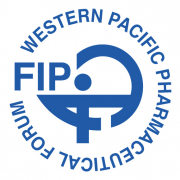World Health Assembly approves resolution on hepatitis and mechanism to coordinate noncommunicable disease response
22 May, 2014
reference: http://www.who.int/mediacentre/news/releases/2014/WHA-20140522/en/
22 MAY 2014 | GENEVA – The World Health Assembly approved a resolution to improve the prevention, diagnosis and treatment of viral hepatitis and proposals to improve global coordination of efforts to address noncommunicable diseases like diabetes, cancers, heart disease and stroke. In addition, WHO’s Director-General and the President of the Health Assembly presented 4 awards to leaders in public health.
Viral hepatitis
Viral hepatitis is responsible for 1.4 million deaths every year; 500 million people currently live with the disease. There are 5 main hepatitis viruses (A, B, C, D and E). Types B and C lead to chronic disease in hundreds of millions of people and, together, are the most common cause of liver cirrhosis and cancer. The resolution also highlights the importance of expanding hepatitis A and B vaccination programmes and further strengthening infection control measures in health-care settings – such as strategies to improve the safety of injections.
The resolution noted the importance of implementing appropriate measures to protect groups such as people who inject drugs from infection and to improve their access to diagnostics and treatment. As most people with chronic hepatitis B or C remain unaware of their infection, there is also a need to improve screening.
Delegates agreed to consider a range of measures to improve access to quality and affordable hepatitis medicines and diagnostics, whilst addressing intellectual property rights issues related to those products.
The delegates asked the WHO Secretariat to continue to help countries develop robust strategies and goals on hepatitis and to report regularly on the progress of such programmes, as well as examining the feasibility of eliminating hepatitis B and C.
Noncommunicable diseases (NCDs)
Delegates approved 9 indicators to measure progress in implementing the WHO Global NCD Action Plan. They also endorsed the terms of reference and workplan for a Global Coordination Mechanism. The Assembly recommended that the Director-General submit proposed terms of reference for a United Nations Interagency Task Force on NCDs to the United Nations Economic and Social Council (ECOSOC).
A United Nations High-level Meeting will take place in New York on 10–11 July 2014 to review progress on NCDs. Member States asked the WHO Secretariat to report on the follow-up to this meeting at the next Health Assembly.
Awards
Director-General Dr Margaret Chan and the President of the Sixty-seventh World Health Assembly, Dr Roberto Tomas Morales Ojeda, today awarded 4 prizes to leaders in public health.
The Ihsan Dogramaci Family Health Foundation Prize is awarded to Professor Zulfiqar Bhutta (Pakistan) for his global work on child and newborn survival and health.
The Sasakawa Health Prize is awarded to the Leprosy Control Foundation /Dominican Institution of Dermatology and Skin Surgery “Dr Hubert Bogaert Diaz” to expand services for children affected by skin diseases other than leprosy.
The United Arab Emirates Health Foundation Prize was awarded to the Institution for Research in Health (INISA) (Costa Rica) for its work on gastric cancer and occupational exposure to pesticides.
The Dr Lee Jong-wook Memorial Prize for Public Health was awarded jointly to Professor Sinata Koulla-Shiro (Cameroon) and the Czech Society of Cardiology (Czech Republic).
